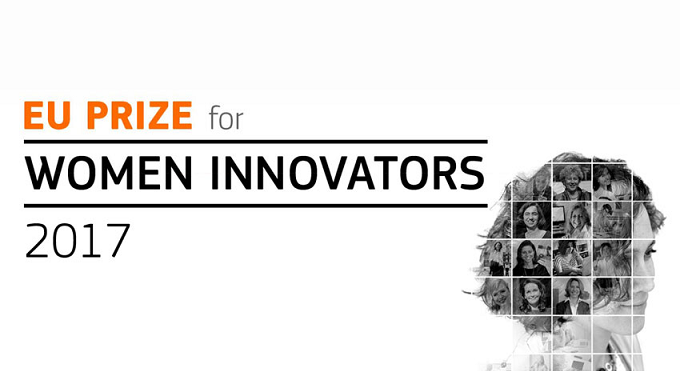EU Prize for Women Innovators 2017
EU Prize for Women in innovation has been organised by the European Commission since 2011 in terms of the Horizon 2020 programme. It is a well known fact that the innovation drives the economical development. Nevertheless, women represent only a one third of entrepreneurs in Europe.

Image : European Commission
EU Prize for Women in innovation has been organised by the European Commission since 2011 in terms of the Horizon 2020 programme. It is a well known fact that the innovation drives the economical development. Women represent only a one third of entrepreneurs in Europe. The Commission considers that often women who may have the entrepreneurial spirit and creative and innovative mindset do not exploit their potential for a myriad reasons : the perspective that only men can be efficient entrepreneurs, the shyness, the disinformation, diverse priorities, familial preoccupations a.o. EU Prize for Women in innovation has been created to encourage women to exploit the opportunities in all sectors of the entrepreneurship.
However, there are certain conditions if the women wish to participate in the contest. According to the official information published on the Commission’s homepage, the women must reside on daily basis in the EU or a country that is linked to Horizon 2020 Programme. That does not seem surprising. Nevertheless, this is where the conditions get stricter : the women must have founded or co-founded a company which is currently active and included in the register by 1 January 2015. Moreover, the annual turnover of the company in 2014 or 2015 must has been a minimum of EUR 0.10 million. Therefore, this condition imposes some limitation for very small enterprises. Lastly, the women or the company must be a beneficiary of European or national funding for Research and Innovation, bank funding or alternative sources funding : private equity, venture capital, crowd funding or business angels (European Commission, 2016). Therefore, not every business woman can be a candidate for the Prize.
The Commission will be offering three EU prizes for women in innovation and one Raising Innovation Award. While waiting for the announcement of the official candidates in 2017, it seems interesting to explore the winners of the last year. The first place was attributed to the Portuguese entrepreneur, Dr Susana Sargento and a company Veniam. In her job, she transforms cars in Wi-Fi hot-spots and creates car networks of the city-scale to collect terabytes of urban data. The second innovation award was given to a Finnish entrepreneur Professor Silpa Jalkanen who co-founded a company called BioTie Therapies. In her work she researched unique targets for drug development for harmful inflammations and cancer treatment (European Commission, 2016). The last winner was an Irish entrepreneur Dr.Sarah Bourke who developed software for the International Space Station and had been previously awarded by NASA. Last year, the other candidates were from the Great Britain, Israel, Finland, Sweden, Germany and France.
This year’s candidates are not announced yet, but the Commission will communicate a list of finalists in February and the winners will be awarded in March. The amount of prize for the three finalists are respectively € 100 000, € 50 000 and € 30 000. This year the Commission has decided to launch a new prize : Rising Innovator Prize that will receive € 20 000. Let’s follow the interesting innovations created by European women that will be revealed in February!
Sources
European Commission (2016a). EU Prize for Women Innovators 2017. Accessed at http://ec.europa.eu/research/innovation-union/index_en.cfm?section=women-innovators
European Commission (2016b). EU Prize for Women Innovators 2017 : Rules of Contest. Accessed at http://ec.europa.eu/research/participants/data/ref/h2020/other/prizes/contest_rules/h2020-prizes-rules-wip-17_en.pdf
European Commission (2016b). The Winners are ... . Accessed at http://ec.europa.eu/research/innovation-union/index_en.cfm?section=women-innovators&pg=2016